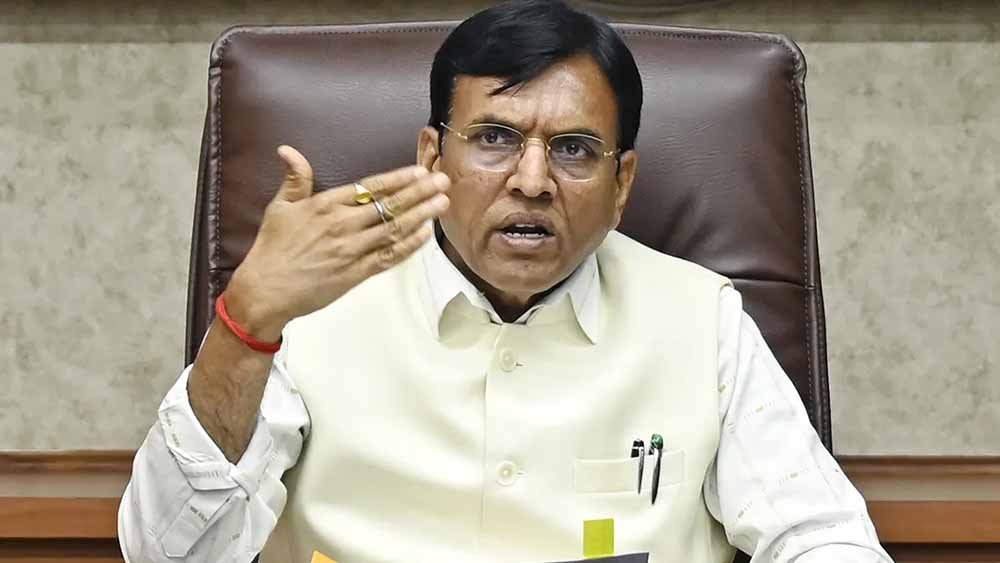Its passage through Parliament achieved smoothly, the landmark National Sports Governance Bill will be implemented within the next six months and preparatory work like “drafting of rules and identification of infrastructure” has already started, Sports Minister Mansukh Mandaviya told PTI on Wednesday.
In his first interview after the passing of the bill in both houses, Mandaviya also justified as “standard safeguard” the bill’s provision that gives government discretionary power to “impose reasonable restrictions” on international participation of Indian teams and individual athletes under “extraordinary circumstances”.
“This bill will be implemented as soon as possible. Within the next six months, all procedures will be completed to ensure 100 per cent implementation,” Mandaviya said in the exclusive interaction at his residence.
The passing of the bill makes India the 21st country to have a sports law. Implementation of its most significant provisions would require the setting up of a National Sports Board (NSB), which would provide affiliation to National Sports Federations (NSFs), a National Sports Tribunal (NST) for dispute resolution and a National Sports Election Panel (NSEP) to oversee NSF elections. “Creation of posts and other administrative approvals will follow established procedures of the Department of Personnel and Training and the Department of Expenditure,” Mandaviya said “The aim is to ensure that both institutions (NSB and NST) are fully functional at the earliest possible date consistent with statutory and procedural requirements,” he added, while reiterating that the bill is “the single biggest reform in sports since independence”.
The bill has been largely supported by the NSFs as well as athletes. The Indian Olympic Association, which was at first skeptical, has also backed it after extensive discussions with the minister.
Standard safeguards
With the passing of the bill, the unsaid understanding of the government having the final say on India’s participation in international events has been formalised.
This is an issue that crops up mostly when arch-foes Pakistan are involved in times of high border tensions as has been the case since this year’s Pahalgam terror attack. Mandaviya said the government discretion in the bill has not been codified with any particular country in consideration.
“The provision empowering the government to stop international participation is a standard safeguard seen in sports laws globally, intended for use in extraordinary circumstances,” Mandaviya said. “It covers situations such as national security threats, diplomatic boycotts, or global emergencies, and is not directed against any particular country.
“In practice, decisions regarding sporting engagements with Pakistan have been shaped by broader government policy and security assessments, particularly after major incidents affecting bilateral relations,” he added.
He cited the absence of bilateral cricket between the two countries since the 2008 Mumbai terror attacks as a case in point.
“…full senior men’s cricket tours to Pakistan have not taken place since the 2008 Mumbai attacks, and high-profile matches have often been moved to neutral venues. Such decisions are taken on a case-by-case basis in consultation with the Ministry of External Affairs and security agencies.
“The Act formalises the government’s ability to act decisively and lawfully in such situations, while ensuring that any decision remains consistent with India’s commitments under the Olympic Charter and the statutes of relevant international sporting bodies,” he said.
“This reflects the Modi government’s clarity in protecting national interest while upholding global sporting obligations.”
Speaking about the challenges that he faced during the consultative stage of the bill, Mandaviya said he took it upon himself to clear doubts with extensive presentations for all stakeholders on the nitty-gritties of the document.
“The first major challenge was the fragmented legal landscape, with over 350 ongoing sports-related court cases that had stalled governance in many National Sports Federations.
Implementation of sports bill in 6 months, regulation of participation standard safeguard, says Mandaviya
NEW DELHI, AUG 13 (PTI)

